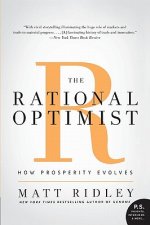
Code: 02416732
Globalization and Its Enemies
by Daniel Cohen
The enemies of globalization--whether they denounce the exploitation of poor countries by rich ones or the imposition of Western values on traditional cultures--see the new world economy as forcing a system on people who do not wa ... more
- Language:
 English
English - Binding: Paperback
- Number of pages: 208
Publisher: MIT Press Ltd, 2007
- More about this

9.52 €
RRP: 11.49 €
You save 1.98 €
Availability:
50/50 We think title might be available. Upon your order we will do our best to get it within 6 weeks.
We think title might be available. Upon your order we will do our best to get it within 6 weeks.We search the world
You might also like
-

Cambridge Global English Stage 5 Activity Book
11.02 € -

Teenage Mutant Ninja Turtles: The Last Ronin
22.15 € -27 % -

The Bazaar of Bad Dreams
30.67 € -

How We Work
15.33 € -19 % -

Little Mercies
10.62 € -

Dřevěné puzzle Mapa Evropy 35 dílků
16.13 € -25 % -

Applied Psychology for Project Managers
58.35 € -

Echo Killer
10.92 € -4 % -

Geometrie Des Groupes de Lie Symplectiques
57.65 € -

Smart Power ICs
341.64 € -

Olaf Otto BeckerUnder the Nordic Light
95.25 € -

Essays in Polynesian Ethnology
49.93 € -

Lass mich kommen! Erotischer Roman
10.22 € -10 % -

Assault and Flattery
13.43 € -25 %
Give this book as a present today
- Order book and choose Gift Order.
- We will send you book gift voucher at once. You can give it out to anyone.
- Book will be send to donee, nothing more to care about.
Availability alert
Enter your e-mail address and once book will be available,
we will send you a message. It's that simple.
More about Globalization and Its Enemies
You get 24 loyalty points
 Book synopsis
Book synopsis
The enemies of globalization--whether they denounce the exploitation of poor countries by rich ones or the imposition of Western values on traditional cultures--see the new world economy as forcing a system on people who do not want it. But the truth of the matter, writes Daniel Cohen in this provocative account, may be the reverse. Globalization, thanks to the speed of twenty-first-century communications, shows people a world of material prosperity that they do want--a vivid world of promises that have yet to be fulfilled. For the most impoverished developing nations, globalization remains only an elusive image, a fleeting mirage. Never before, Cohen says, have the means of communication--the media--created such a global consciousness, and never have economic forces lagged so far behind expectations.Today's globalization, Cohen argues, is the third act in a history that began with the Spanish Conquistadors in the sixteenth century and continued with Great Britain's nineteenth-century empire of free trade. In the nineteenth century, as in the twenty-first, a revolution in transportation and communication did not promote widespread wealth but favored polarization. India, a part of the British empire, was just as poor in 1913 as it was in 1820. Will today's information economy do better in disseminating wealth than the telegraph did two centuries ago? Presumably yes, if one gauges the outcome from China's perspective; surely not, if Africa's experience is a guide. At any rate, poor countries require much effort and investment to become players in the global game. The view that technologies and world trade bring wealth by themselves is no more true today than it was two centuries ago.We should not, Cohen writes, consider globalization as an accomplished fact. It is because of what has yet to happen--the unfulfilled promises of prosperity--that globalization has so many enemies in the contemporary world. For the poorest countries of the world, the problem is not so much that they are exploited by globalization as that they are forgotten and excluded.
 Book details
Book details
Book category Books in English Society & social sciences Society & culture: general Social issues & processes
9.52 €
- Full title: Globalization and Its Enemies
- Author: Daniel Cohen
- Language:
 English
English - Binding: Paperback
- Number of pages: 208
- EAN: 9780262532976
- ISBN: 0262532972
- ID: 02416732
- Publisher: MIT Press Ltd
- Weight: 249 g
- Dimensions: 203 × 137 × 13 mm
- Date of publishing: 07. September 2007
Trending among others
-

The Second Sex
7.11 € -24 % -

Regarding the Pain of Others
12.22 € -21 % -

From Rage to Courage
17.14 € -18 % -

Feminism, Interrupted
13.63 € -

Great Leveler
17.44 € -12 % -

The Beauty Myth
6.11 € -27 % -

Blitzed
10.92 € -23 % -

Scum Manifesto
8.11 € -13 % -

Psychopath Free
20.25 € -3 % -

Conflict Is Not Abuse
17.54 € -16 % -

BEYOND WORDS
19.54 € -14 % -

Spirit Level
12.22 € -21 % -

Awakened Woman
13.03 € -28 % -

Sexual Politics of Meat - 25th Anniversary Edition
30.67 € -

Shock Doctrine
14.93 € -21 % -

Men Explain Things to Me
10.82 € -31 % -

Future Shock
9.01 € -16 % -

Alcoholics Anonymous Big Book
22.65 € -

Third Wave
8.61 € -20 % -

The Feminine Mystique
10.02 € -24 % -

Pedagogy of the Oppressed
10.12 € -23 % -

Toxic Parents
14.43 € -21 % -

Out Of The Shadows:understanding Sexual Addiction
15.93 € -16 % -

Primal Wound
43.61 € -

Pleasure Activism
16.13 € -22 % -

Rational Optimist
15.93 € -24 % -

Food Of The Gods
15.13 € -28 % -

The Next 100 Years
13.73 € -25 % -

White Tears Brown Scars
10.12 € -23 % -

No Logo
11.82 € -19 % -

Soft Power
14.33 € -28 % -

Political Correctness Gone Mad?
8.61 € -29 % -

Rational Recovery
15.23 € -24 % -

Perfect Daughters
13.83 € -23 % -

Problem that Has No Name
2.50 € -

We Should All Be Feminists
9.42 € -13 % -

Second Sex
22.85 € -18 % -

Development as Freedom
15.83 € -12 % -

Courage To Heal Workbook
23.25 € -16 % -

Life at the Bottom
14.03 € -21 % -

Stuart
13.43 € -14 % -

Facing the Shadow
30.98 € -23 % -

Critical Race Theory (Third Edition)
20.35 € -7 % -

Lipitor
14.53 € -21 % -

Free from Lies
19.34 € -18 % -

Get Your Loved One Sober
14.13 € -25 % -

Krav Maga Professional Tactics
21.45 € -22 % -

Priceless
13.93 € -18 % -

Women & Power
8.81 € -18 %
Collection points Bratislava a 2642 dalších
Copyright ©2008-24 najlacnejsie-knihy.sk All rights reservedPrivacyCookies


 15549 collection points
15549 collection points Delivery 2.99 €
Delivery 2.99 € 02/210 210 99 (8-15.30h)
02/210 210 99 (8-15.30h)